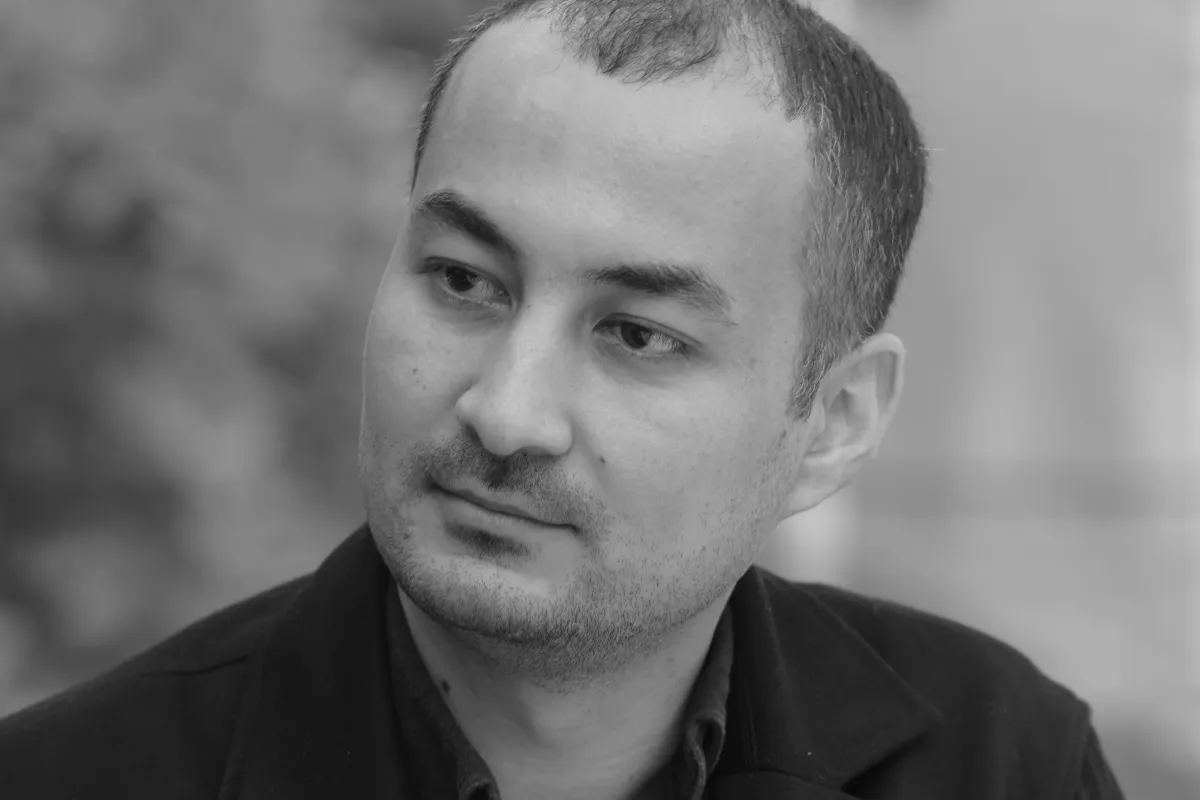Of course, I am ashamed

Born in Afghanistan in 1986, Taqi Akhlaqi is a writer and playwright who left Kabul after the return of the Taliban in 2021 and lives in Berlin now. His most recent book "Versteh einer die Deutschen" is about his first trip to Germany and Europe in 2016.
Shame, more than an instinctive feeling, has a close connection with the society and its moral values. In childhood, we learn from our parents and the people around us which behaviors are shameful, and then we usually maintain this value system and pass it on to the next generations. Therefore, what is considered shameful can vary greatly, and even be contradictory, from one culture to another. This difference in the feeling of shame can lead to cultural shock and confusion for newcomers to a new country. Nonetheless, such issues are rarely discussed because people, especially those from a closed traditional background, find it difficult to talk about shameful topics. For them, shame becomes a taboo and sometimes a matter of life and death.
I spent my childhood as an immigrant in Iran, and although I was a top student in school, I was constantly humiliated instead of encouraged. In the streets and at school, they called me: "Hey Afghan!" and I saw myself sweating in the cold air; the sweat of shame! That's how I learned from a young age to be ashamed of my country and identity. This issue didn't change even after I returned to Afghanistan and still persists today. I still cannot say without shame that I am from Afghanistan. After all, what is there to be proud of in Afghanistan, a country whose name is tied to war, violence, misogyny, drugs, and the Taliban? But why should I feel ashamed of something over which I had no choice?
It isn't logical or fair, but that's how it is.
When I introduce myself to new people, I know what comes to their minds when they hear the name Afghanistan, and they know that I know, because my face immediately turns red or I become pale. I am instantly suspected of being like the Taliban unless I prove otherwise. Therefore, since I came to Germany in September 2021, I feel like I am on trial every day, and I have to try to prove my innocence in each of these trials. And how exhausting it is to feel this much shame!
However, this issue does not apply to all Afghans, and many are proud of their Afghan identity, especially those who did not migrate as children and were not humiliated. This shows how shame changes with different upbringing and educational conditions. On the other hand, in the extremely traditional and conservative society of Afghanistan, shame becomes a fundamental element in the strict educational system of families and, along with similar feelings like embarrassment and guilt, internalizes religious and tribal values.
Girls are taught to be ashamed of their bodies, to obey, and to bear children, as boys learn to be violent, to give up their personal desires, and to protect religious and tribal ideals. For them, masculinity is a superiority, and nothing is more sacred than the tribe.
In such an environment, it is essential to distinguish between "self" and "others," and then dehumanize “others” so that eliminating them becomes possible without a guilty conscience. That is why in the contemporary history of Afghanistan, countless murders and crimes occur continuously, and human life is as valuable as the life of an insect. They grow up in a tribal educational system where others are seen as enemies and less than animals. Then, the same people who easily shed each other's blood, over issues that might be considered trivial and even ridiculous in the West, experience a lifetime of shame and disgrace. For example, flatulence!
There is a famous story that says an Afghan man farted loudly in the mosque one night and was so ashamed that he immediately packed up and left the village forever at the very same night. Twenty years later, his son, who knew nothing about this incident, returned to their village and after introducing himself, saw an old man laughing, saying to the others:
"This is the son of the man who farted in the mosque twenty years ago."
The point we understand from this story is that in Afghanistan, an inappropriate fart can literally be catastrophic. Now imagine a person who grew up in such conditions, came to Germany and then suddenly one day, for the first time, hears a man or woman fart on a bus or train. Yes! A big cultural shock! Also, a sense of shame. Of course, shame for something not done by oneself but by another person, for which the German language has a beautiful word: fremdschämen!
Someone who experiences fremdschämen has two ways to escape it: without doubting their cultural values, blame and look down on others, or empathize with others and try to overcome their rigid standards. The latter, of course, is a long and painful process, and not many people go towards it, mostly because it requires dialogue, doubt, and change in beliefs that also shape our identity. If we don't do this, we have to resort to hatred and violence, a path that Afghanistan has taken at least for the last century, resulting in a fragmented society that is shattered and decaying in all dimensions.
For such a society that does not feel shame for rape and crime but considers talking about the body and flatulence a taboo, there is no immediate solution. However, in the long run, literature can be a way forward by creating empathy. Only by talking about shameful topics can we overcome shame, and only by understanding others can we avoid fremdschämen for every insignificant issue.



